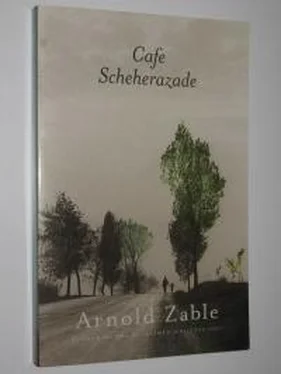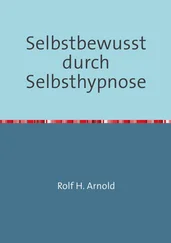Arnold Zable - Cafe Scheherazade
Здесь есть возможность читать онлайн «Arnold Zable - Cafe Scheherazade» весь текст электронной книги совершенно бесплатно (целиком полную версию без сокращений). В некоторых случаях можно слушать аудио, скачать через торрент в формате fb2 и присутствует краткое содержание. Город: Melbourne, Год выпуска: 2001, Издательство: Text Publishing Company, Жанр: Проза, на английском языке. Описание произведения, (предисловие) а так же отзывы посетителей доступны на портале библиотеки ЛибКат.
- Название:Cafe Scheherazade
- Автор:
- Издательство:Text Publishing Company
- Жанр:
- Год:2001
- Город:Melbourne
- ISBN:нет данных
- Рейтинг книги:4 / 5. Голосов: 1
-
Избранное:Добавить в избранное
- Отзывы:
-
Ваша оценка:
- 80
- 1
- 2
- 3
- 4
- 5
Cafe Scheherazade: краткое содержание, описание и аннотация
Предлагаем к чтению аннотацию, описание, краткое содержание или предисловие (зависит от того, что написал сам автор книги «Cafe Scheherazade»). Если вы не нашли необходимую информацию о книге — напишите в комментариях, мы постараемся отыскать её.
Cafe Scheherazade — читать онлайн бесплатно полную книгу (весь текст) целиком
Ниже представлен текст книги, разбитый по страницам. Система сохранения места последней прочитанной страницы, позволяет с удобством читать онлайн бесплатно книгу «Cafe Scheherazade», без необходимости каждый раз заново искать на чём Вы остановились. Поставьте закладку, и сможете в любой момент перейти на страницу, на которой закончили чтение.
Интервал:
Закладка:
This is when their stories began to be suppressed. This is when the Frydmans, and so many others who had survived in the east, were overwhelmed by the demands of others in far greater distress; and by an urgent need to forget, to bury the past and to rebuild their aborted lives.
"When we first met," says Masha, "Avram told me that all those years in gehennim he had dreamt of a white room. A brightly lit room. With a desk at which he could sit and write. That is all he wanted, a room with an electric light."
"I dreamt about it all the time," says Avram, "in all those years of crawling through swamps and shit, I dreamt of a white room.
154 With a desk at which I could sit and record my days in the
Kingdom of Night.'
"When we first met, I fell in love with his stories. He made me feel I had led a sheltered life. He made me feel I had nothing to complain about. Avram's stories made me feel that my suffering had been trivial."
"We met at a Bund gathering. In the Polish countryside, near
Wroclaw. In the summer of 1946. I was twenty-two, and Masha was nineteen. For me it was love at first sight."
"I was not so sure. I could see he was not ambitious. I could see he was a dreamer. All he wanted was a white room, with a desk, and a light. Can you believe it? That I fell in love with his stories?"
"I thought we could rebuild our lives in Poland," says Avram. "I travelled the countryside on Bund missions. I collected children from hiding, from convents and nunneries, from cellars, attics and warrens dug deep in the ground. I retrieved them from peasants who had concealed them behind false walls. And I collected documents for our archives. I was driven by a need to record, to pick up the pieces, to reconnect. But inside I felt empty. I had a craving for human touch, a welcoming face."
"I sensed it in him from the beginning," says Masha, "his need to be heard; and it frightened me. Yet it drew me to him. At the same time I was anxious to get on with my own life. I was nineteen and full of hopes. I did not want to be like my mother, a servant of the family. I wanted to study, to fend for myself."
"I wanted to remake my life," says Avram. "I wanted to 155 restore the Jewish communities of Poland. I settled in Lodz. I became active in the Bund. We tried to help those who survived.
We welcomed refugees, found them a place to stay, and tried to determine the fate of their loved ones. And I loved Lodz.
Compared to my devastated `Vilna, it was beautiful."
"I wanted to study medicine. I moved from Katowice, where my parents had resettled, to Lodz. I enrolled in the university.
From all over Poland they were returning. From camps, from forests and hiding places. Each one had a story to tell. We were overwhelmed by their tales. I was overwhelmed by Avram. I had a mother, a father, a brother, a sister, all of whom were alive. We had all survived, but Avram was completely alone."
"At that time," says Avram, "I read a book that seemed to reflect my situation. We all read this book. Arc de Triomphe, it was called. Written by Erich Maria Remarque, a German writer, the very same author who wrote AU Quiet on the Western Front It was a book about stateless people. A book about lovers. A book about us. And it was in this book that we first heard of a nightclub called Scheherazade."
"Avramel, you should explain that Scheherazade was in Paris. A cabaret where Russian emigres would meet, where they felt at home. This was where they heard the music of their past, played on Gypsy violins. Where they talked and reminisced, and imagined the day of their return. And this was where Remarque's lovers met, the doctor and the cabaret singer. Whenever they met, they would drink an apple brandy called Calvados."
156
"When I read this book," says Avram, "I began, for the first time, to dream of Paris, of other cities, other worlds. When I read this book I began to imagine a different way of living, a new life."
"Avramel, you are jumping ahead again. You have not told Martin the full story-the stories that so overwhelmed me, and made mine seem so mild, the stories that I could hardly believe when I first heard them, and that still fill me with wonder and disbelief. You have not told him about the Kingdom of Night."
It was twilight in the Jerusalem of eastern Europe, a lull before the final storm. It broke on a sunlit Sunday morning, 22 June
1941. They came from the west, in waves. They darkened the Vilna skies. They heralded a reign of terror. They unleashed a hail of bombs that pounded the heart of the city.
The Red Army scattered towards the east. Within two days the
Nazis entered the city gates. Mobs rampaged through the streets.
Homes were looted and plundered. Jewish men between the ages of sixteen and sixty-five were rounded up and thrown onto trucks that conveyed them to the forests of Ponary, a village eight kilometres from the city. They were ordered to strip naked, lined up side by side, and shot into mass graves. Body piled upon body.
The freshly dug earth was tossed onto the bodies, both dead and alive.
As the assault raged with increasing ferocity, Avram 157 remained hidden within the walls of the family home. He stayed put in the beloved city. He hid in the darkness. He had entered the Kingdom of Night.
Avram has told the tale many times. He is an avid guardian of the past. He tells it as a sacred duty. He tells it with restraint.
Yet with each telling it retains its power to astonish.
He remained hidden for days. He finally stole out of Vilna at night. He walked forest paths to the village of Resze, twentyfive kilometres distant. On the outskirts of the village there stood a peat works. By day Avram would trudge to the swamps to extract peat from the rotting earth. In the evenings he returned to the factory barracks, where he would hear the most recent rumours, the latest report.
With each passing night, the news was more frightening. His loved ones were forbidden to walk on the Vilna footpaths. They were forced to crawl in the gutters. They were ordered to wear yellow stars on their shirts. Menfolk were seized at night, and driven out of their homes. They left carrying towels and soap, and vanished into the forests of Ponary. For six weeks the assault continued. Peasants who had witnessed the mass shootings confirmed the rumours. Ponary had become a killing field.
In the final days of August, the Lithuanian manager of the peat works returned to Resze from Vilna and warned his workers that the Nazis were planning a massive pogrom. He had reliable contacts. It would take place in early September. Avram sent a message to Vilna, via a Polish peasant. He delivered the letter to the family home, urging his loved ones to escape.
158
The peasant returned with Avram's sister Basia, her husband Uri, and their six-year-old son Shmulek. But his mother, Etta, refused to leave. She was done with furtive journeys. After so many years on the run she had made a life in Vilna, and created the stable home she always craved.
On 6 September 1941 the foundation she had built was torn from beneath her feet. The Jews of Vilna were driven from their dwellings. They were herded into two ghettos. Those with trades, skills, those deemed useful, ripe for slavery, were assembled in the first ghetto. The weak, the old, the expendable were herded into the second.
When Avram heard the news he persuaded his boss to provide him with a horse and wagon. Disguised as a peasant he drove to Vilna with a load of peat. He delivered the peat and drove to the family home. When he saw Avram at the door, the Polish janitor was terrified. He crossed himself repeatedly. Etta had been taken to the second ghetto, which was located in the old Jewish quarter of Vilna.
He had lost all fear, Avram tells me, as if still in awe at the fact. He had entered another state of being where all calculation ceased. He drove openly through Vilna's streets. He urged his horse through the ghetto gates under the noses of armed guards.
Читать дальшеИнтервал:
Закладка:
Похожие книги на «Cafe Scheherazade»
Представляем Вашему вниманию похожие книги на «Cafe Scheherazade» списком для выбора. Мы отобрали схожую по названию и смыслу литературу в надежде предоставить читателям больше вариантов отыскать новые, интересные, ещё непрочитанные произведения.
Обсуждение, отзывы о книге «Cafe Scheherazade» и просто собственные мнения читателей. Оставьте ваши комментарии, напишите, что Вы думаете о произведении, его смысле или главных героях. Укажите что конкретно понравилось, а что нет, и почему Вы так считаете.












